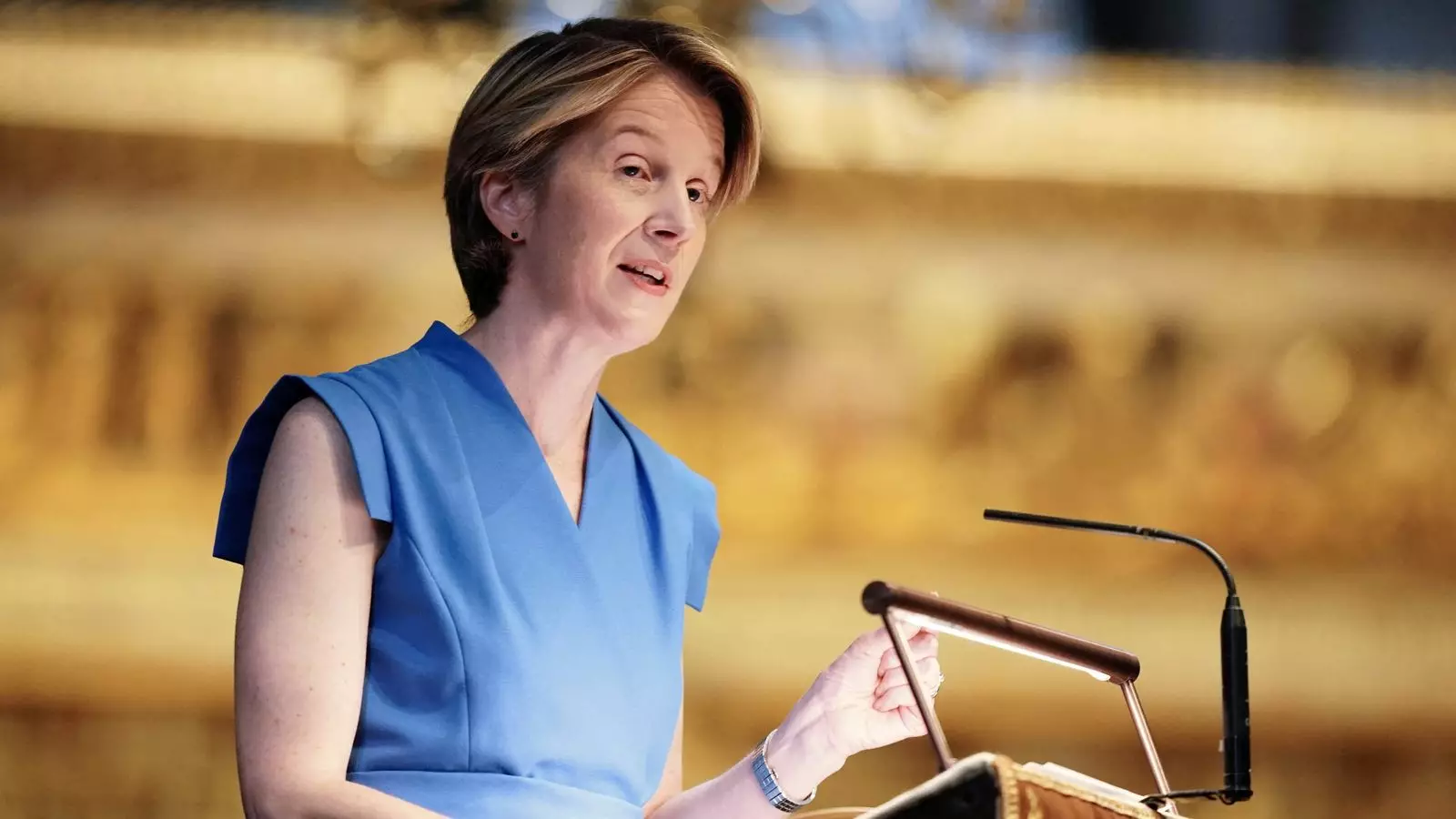The recent announcement of Amanda Pritchard’s resignation from her position as the head of NHS England marks a significant turning point not just for her career, but for the entire health service in England. As the first woman to hold this pivotal role, her departure signifies the closing of a chapter that has been both historic and challenging. Pritchard’s tenure at NHS England began in 2021 against the backdrop of a healthcare system grappling with unprecedented challenges, primarily due to the COVID-19 pandemic. Her decision to step away from the role has sparked a multitude of reactions, highlighting the complexities of governance within such a high-stakes environment.
Pritchard’s leadership has been scrutinized in recent weeks, particularly following a series of criticism from cross-party parliamentary committees. Lawmakers expressed their dissatisfaction, citing a perceived lack of “drive and dynamism,” which they believed was essential to institute meaningful reforms across the NHS. This sentiment reflects a broader pattern of increasing expectations placed on public health leaders to deliver rapid and effective change, especially in the wake of extraordinary pressures inflicted by a global health crisis.
Pritchard characterized her decision to resign as a “hugely difficult” one, emphasizing both the privilege and honor of leading such an esteemed institution during its most turbulent times. In her statement, she acknowledged the vast impact the pandemic has had on the NHS and its personnel, asserting her belief that now is an opportune moment for the organization to continue progressing without her at the helm. This transitional perspective emphasizes the importance of forward motion, underscoring that the work of the NHS is not an individual endeavor but a collective effort made up of extraordinary individuals committed to patient care.
The challenge of navigating legislative scrutiny while managing the multifaceted needs of the NHS exemplifies the intricate dynamics of healthcare leadership. During a recent parliamentary hearing, members of both the public accounts and health and social care committees expressed discontent with the responses provided by Pritchard and her team, highlighting frustrations with well-meaning but ultimately unsatisfactory answers. Such moments of tension are not uncommon in political arenas where urgent health concerns intersect with public accountability, often leading to the heightened pressures faced by those in leadership roles.
In reflecting upon her leadership, Health Secretary Wes Streeting acknowledged the challenges Pritchard faced and commended her for leading the NHS with “integrity and unwavering commitment.” His praise underscores the complexity of leading an organization that has had to adapt repeatedly in response to emerging crises. The NHS has long been a cornerstone of British society, and as it prepares to move forward from the pandemic, it will require exceptional leadership—both in guidance and vision—during its recovery phase.
With Sir James Mackey announced as Pritchard’s successor in an interim capacity, the transition seems poised to focus on the recovering landscape of public health. Mackey, currently the chief executive of Newcastle Hospitals Foundation Trust, brings with him experience and an understanding of the operational challenges that will define the NHS’s future. His appointment signals a desire for continuity while brandishing the possibility of transformative strategies to aid in the institution’s recovery and progression.
As Pritchard departs from her role, her legacy will be defined by both her achievements and the hurdles she faced in a changing world. Her tenure shines a light on the essential need for effective communication and accountability in public health governance, which are responsibilities that weigh heavily on leaders in times of crisis. While she may no longer be leading the NHS, her contributions during an era of monumental change will undoubtedly resonate in the dialogues around healthcare reform and resilience for years to come.
While Amanda Pritchard’s resignation signals a new chapter for the NHS, it also provides an opportunity to reflect on the nature of leadership within one of the world’s most revered health systems. The challenges she navigated highlight the complexities of governance in a time of crisis, reminding us that true leadership is often measured not just by triumphs, but by how one adapts and perseveres through adversity. With the foundations set for recovery and change, the NHS stands on the precipice of potential, ready to move forward in pursuit of its 10 Year Health Plan, and it will be up to the next generation of leaders to build upon the work that Pritchard has accomplished.

